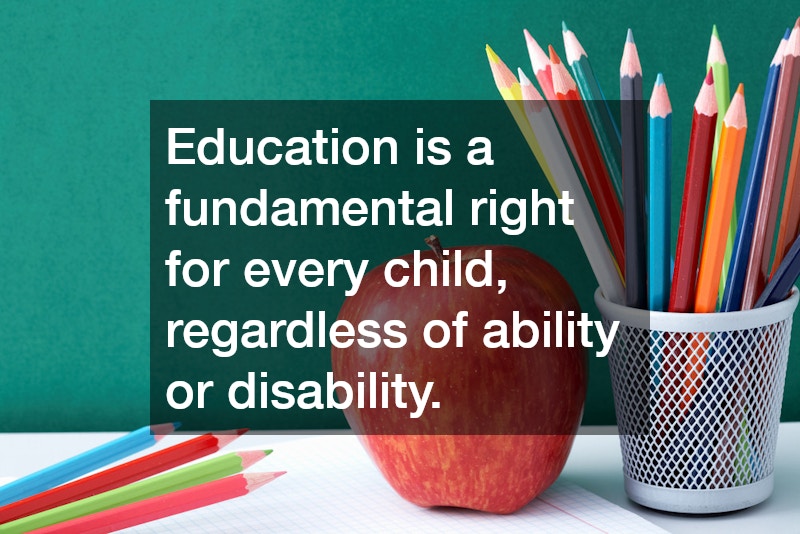Education is a fundamental right for every child, regardless of ability or disability. For students with disabilities, this right is protected and reinforced through federal and state laws that ensure equitable access to education and necessary support services. Central to these legal protections are special education law and the Individualized Education Program (IEP), two pillars that define how schools serve students with special needs. Understanding these systems is essential for parents, educators, and advocates who wish to ensure that every student receives a fair and appropriate education.
The Foundation of Special Education Law
Special education in the United States is primarily governed by the Individuals with Disabilities Education Act (IDEA), first enacted in 1975 and reauthorized several times since. This law guarantees that eligible children with disabilities are entitled to a Free Appropriate Public Education (FAPE) in the Least Restrictive Environment (LRE). In other words, children with disabilities must be educated alongside their non-disabled peers to the maximum extent appropriate, and schools must provide the services and accommodations needed for them to succeed.
Under IDEA, states receiving federal education funding must comply with specific requirements for identifying, evaluating, and serving students with disabilities. These services are not favors or privileges—they are legal entitlements. Schools must follow procedural safeguards to ensure that parents have an active role in educational decisions affecting their child. When disputes arise, parents have the right to mediation, due process hearings, and even litigation to ensure compliance with the law.
Other key laws also shape special education practice. The Section 504 of the Rehabilitation Act of 1973 prohibits discrimination against individuals with disabilities in programs that receive federal funding, including public schools. Meanwhile, the Americans with Disabilities Act (ADA) extends these protections to nearly all public and private educational institutions. Together, these laws form a robust legal framework ensuring that students with disabilities have equal access to education and the supports they need to thrive.
Understanding the Individualized Education Program (IEP)
The IEP is the cornerstone of special education services under IDEA. It is a written plan developed collaboratively by a team that includes educators, specialists, and, most importantly, the student’s parents or guardians. The IEP outlines a child’s unique needs, measurable annual goals, and the special education and related services the school will provide.
An IEP must include:
-
A statement of the student’s present levels of performance – detailing academic achievement and functional abilities.
-
Measurable annual goals – describing what the student is expected to achieve within a year.
-
Special education and related services – specifying supports such as speech therapy, occupational therapy, or assistive technology.
-
Participation with non-disabled peers – explaining how much time the student will spend in general education settings.
-
Progress measurement – how the school will track and report the student’s progress toward goals.
Developing an effective IEP requires collaboration and transparency. Parents have the right to request evaluations, challenge proposed goals, and demand services that meet their child’s needs. Schools must review the IEP at least once a year, but parents can request meetings anytime they believe changes are necessary.
Common Challenges and Disputes
Despite clear laws, disputes over special education services are not uncommon. Issues may arise over eligibility determinations, adequacy of services, placement decisions, or failure to implement an existing IEP. Sometimes schools lack resources or training; in other cases, there may be simple miscommunication between parents and educators.
When conflicts cannot be resolved through informal discussions, parents can turn to formal legal processes. Mediation, state complaints, and due process hearings are all avenues for addressing disagreements. In such cases, seeking guidance from a special education law firm can be invaluable. These firms specialize in advocating for students’ rights, ensuring compliance with IDEA and related laws, and representing families in negotiations or hearings. Experienced attorneys understand both the educational and legal dimensions of these cases, helping parents navigate a system that can often feel overwhelming.
Special education law and the IEP process are vital mechanisms for ensuring that students with disabilities receive the support and opportunities they deserve. They represent a commitment to inclusion, fairness, and individualized learning. Yet, understanding and navigating these laws can be complex. That’s why collaboration between parents, educators, and legal advocates remains crucial.
For families who feel their child’s needs are not being met, professional assistance can make all the difference. Partnering with a special education law firm ensures that the student’s rights are protected and that the school fulfills its legal obligations. Ultimately, when the law is properly applied and the IEP is faithfully implemented, students with disabilities can reach their full potential—academically, socially, and beyond.






